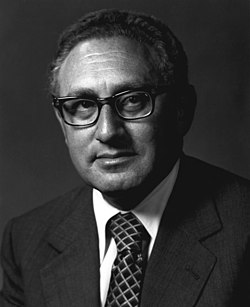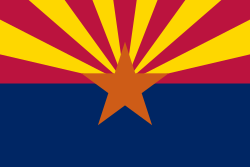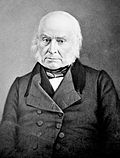
Back Portal:Politik ALS بوابة:السياسة Arabic بوابة:سياسة ARZ Портал:Политика Bulgarian প্রবেশদ্বার:রাজনীতি Bengali/Bangla Portal:Politika BS دەروازە:سیاسەت CKB Portál:Politika Czech Portal:Politik German Portal:Siyaset DIQ
| Main | Topics and categories | Tasks and projects |
The Politics portal
Politics (from Ancient Greek πολιτικά (politiká) 'affairs of the cities') is the set of activities that are associated with making decisions in groups, or other forms of power relations among individuals, such as the distribution of status or resources. The branch of social science that studies politics and government is referred to as political science.
Politics may be used positively in the context of a "political solution" which is compromising and non-violent, or descriptively as "the art or science of government", but the word often also carries a negative connotation. The concept has been defined in various ways, and different approaches have fundamentally differing views on whether it should be used extensively or in a limited way, empirically or normatively, and on whether conflict or co-operation is more essential to it.
A variety of methods are deployed in politics, which include promoting one's own political views among people, negotiation with other political subjects, making laws, and exercising internal and external force, including warfare against adversaries. Politics is exercised on a wide range of social levels, from clans and tribes of traditional societies, through modern local governments, companies and institutions up to sovereign states, to the international level.
In modern nation states, people often form political parties to represent their ideas. Members of a party often agree to take the same position on many issues and agree to support the same changes to law and the same leaders. An election is usually a competition between different parties.
A political system is a framework which defines acceptable political methods within a society. The history of political thought can be traced back to early antiquity, with seminal works such as Plato's Republic, Aristotle's Politics, Confucius's political manuscripts and Chanakya's Arthashastra. (Full article...)
Selected article
The Liberal Movement was a minor South Australian political party in the 1970s. Stemming from discontent within the ranks of the Liberal and Country League, it was organised in 1972 by former premier Steele Hall as an internal group in response to a perceived resistance to sought reform within its parent. A year later, when tensions heightened between the LCL's conservative wing and the LM, it was established in its own right as a progressive liberal party. When still part of the league, it had eleven parliamentarians; on its own, it was reduced to three. In the federal election of 1974, it succeeded in having Hall elected to the Australian Senate with a primary vote of 10 per cent in South Australia. It built upon this in the 1975 state election, gaining almost a fifth of the total vote and an additional member. However, the non-Labor parties narrowly failed to dislodge the incumbent Dunstan Labor government. That result, together with internal weaknesses, led in 1976 to the LM's being re-absorbed into the LCL, which by then had become the South Australian division of the Liberal Party of Australia. The LM and its successor parties gave voice to what is termed "small-l liberalism" in Australia.
Featured picture

Aletta Jacobs (1854–1929) was a Dutch physician and women's suffrage activist. Jacobs strove throughout her life to change laws that limited women's access to equality, starting in 1883 with an unsuccessful court challenge and eventually achieving success on 18 September 1919, with the signing of a suffrage bill into law. In addition to her suffrage work she led campaigns aimed at deregulating prostitution, improving women's working conditions, and promoting peace.
Selected quote
Selected biography
Sir Winston Leonard Spencer-Churchill, (1874 – 1965) was a British politician and statesman known for his leadership of the United Kingdom during the Second World War. He is widely regarded as one of the great wartime leaders. He served as Prime Minister twice (1940–45 and 1951–55). A noted statesman and orator, Churchill was also an officer in the British Army, a historian, a writer, and an artist. During the 1930s, Churchill took the lead in warning about the danger from Hitler and in campaigning for rearmament. On the outbreak of World War II, he was again appointed First Lord of the Admiralty. Following the resignation of Neville Chamberlain on 10 May 1940, Churchill became Prime Minister. His steadfast refusal to consider defeat, surrender or a compromise peace helped inspire British resistance, especially during the difficult early days of the War when Britain stood alone in its active opposition to Hitler. Churchill was particularly noted for his speeches and radio broadcasts, which helped inspire the British people.
Did you know (auto-generated) -

- ... that What Hath God Wrought, the 2007 history of Jacksonian America written by Daniel Walker Howe, is dedicated to Andrew Jackson's "political nemesis" John Quincy Adams?
- ... that a year after becoming the first woman president of the Canadian Political Science Association, Caroline Andrew moderated the first Canadian leaders' debate on women's issues?
- ... that the political and media storm around so-called African gangs in Australia has been described by academics as a moral panic?
- ... that Louis Malet de Graville began a successful career at the centre of French politics after his father was captured by the English?
- ... that nearing the end of his tenure as mayor of Tegal, Indonesia, Adi Winarso took part in a talkshow with his former political competitors?
- ... that following the ban of its labour unions in 1934, the Romanian United Socialist Party would rely on its youth and women's wings for political action?
More did you know...
- ...that Republican National Committee official Rob Bickhart wrote a PowerPoint presentation for a meeting of Republican fundraisers which depicted Nancy Pelosi as Cruella de Vil?
- ...that following its 1994 national convention, the Progress Party of Norway lost its deputy leader and the four MPs Christiansen, Hillgaar, Wetterstad and Bråthen?
- ...that Democrat Mayor Thomas G. Dunn, national co-chairman of Democrats for Nixon, was "read out of the party" for his support of Republican President Richard Nixon's 1972 re-election bid?
- ...that, at a congress in May 1921, all Socialist Party of Romania delegates who supported Bolshevik guidelines were arrested 24 hours after a vote on affiliation to the Comintern?
- ...that Ngo Dinh Diem became president of South Vietnam after a fraudulent 1955 election run by his brother Ngo Dinh Nhu, polling 133% of registered voters in Saigon?
- ...that the Brothers Grimm were amongst the Göttingen Seven, university teachers who protested changes to the constitution of the Kingdom of Hanover in 1837?
- ...that the UK's Workers Socialist Federation began as a suffragette group?
- ...that the controversial Iraq De-Ba'athification policy banned anyone affiliated with the Ba'ath Party from working in the public sector?
In this month
- April 1, 1979 – Iran's government becomes an Islamic Republic by a 98% vote, overthrowing the Shah officially.
- April 9, 1948 – the period known as La Violencia begins with the assassination of Colombian Liberal Party leader Jorge Eliécer Gaitán. For the next ten years Liberals, Communists and Conservatives would fight each other in the conflict.
- April 9, 2003 – Government of Saddam Hussein overthrown by American forces in Iraq.
- April 19, 2006 – Han Myung-sook becomes South Korea's first female Prime Minister.
- April 24, 2005 – Presidential elections in Togo return Faure Gnassingbe to power two months after he was installed by the military following the death of his father, Gnassingbé Eyadéma.
- April 28, 1937 – Saddam Hussein, the President of Iraq was born.
- April 30, 1945 – Adolf Hitler and his wife Eva Braun, commit suicide as the Red Army approached the Führerbunker in Berlin. Karl Dönitz succeeds Hitler as President of Germany; Joseph Goebbels succeeds Hitler as Chancellor of Germany.
News and Current events
- August 11: 4 local government areas in New South Wales, Australia locked down after COVID-19 case
- August 11: Australia: AstraZeneca vaccine access expanded by Victorian government
- August 1: Australia: Victorian lockdown lifted
- July 29: Tunisia's president dismisses prime minister, suspends parliament
- July 25: Australia: Wikinews interviews Reg Kidd, mayor of the City of Orange, about COVID-19 lockdown and local government
- July 23: South Australia enters week-long lockdown to contain COVID-19 Delta variant spread
- July 21: Technological University Dublin senior lecturer Dr Lorcan Sirr speaks to Wikinews on housing market in Ireland
- July 21: Three rural councils in New South Wales, Australia enter 7-day lockdown
- July 21: Australia: Victoria lockdown extended by a week with 85 active cases recorded
- July 15: California governor signs new state budget, eligible Californians to get stimulus payments
Topics and categories
General images
Related portals
Associated Wikimedia
The following Wikimedia Foundation sister projects provide more on this subject:
-
Commons
Free media repository -
Wikibooks
Free textbooks and manuals -
Wikidata
Free knowledge base -
Wikinews
Free-content news -
Wikiquote
Collection of quotations -
Wikisource
Free-content library -
Wikiversity
Free learning tools -
Wiktionary
Dictionary and thesaurus
Sources
More portals
© MMXXIII Rich X Search. We shall prevail. All rights reserved. Rich X Search


























































